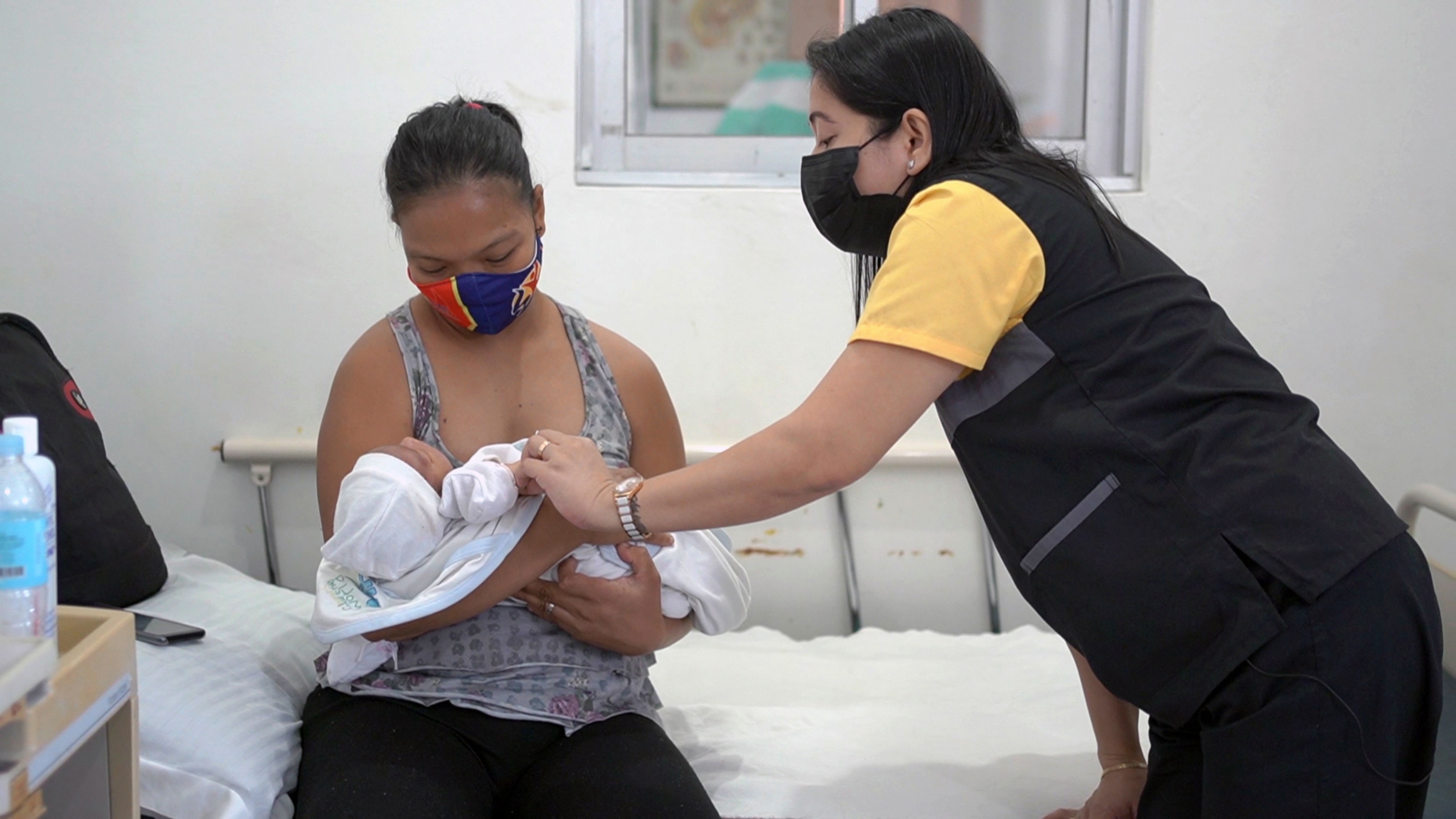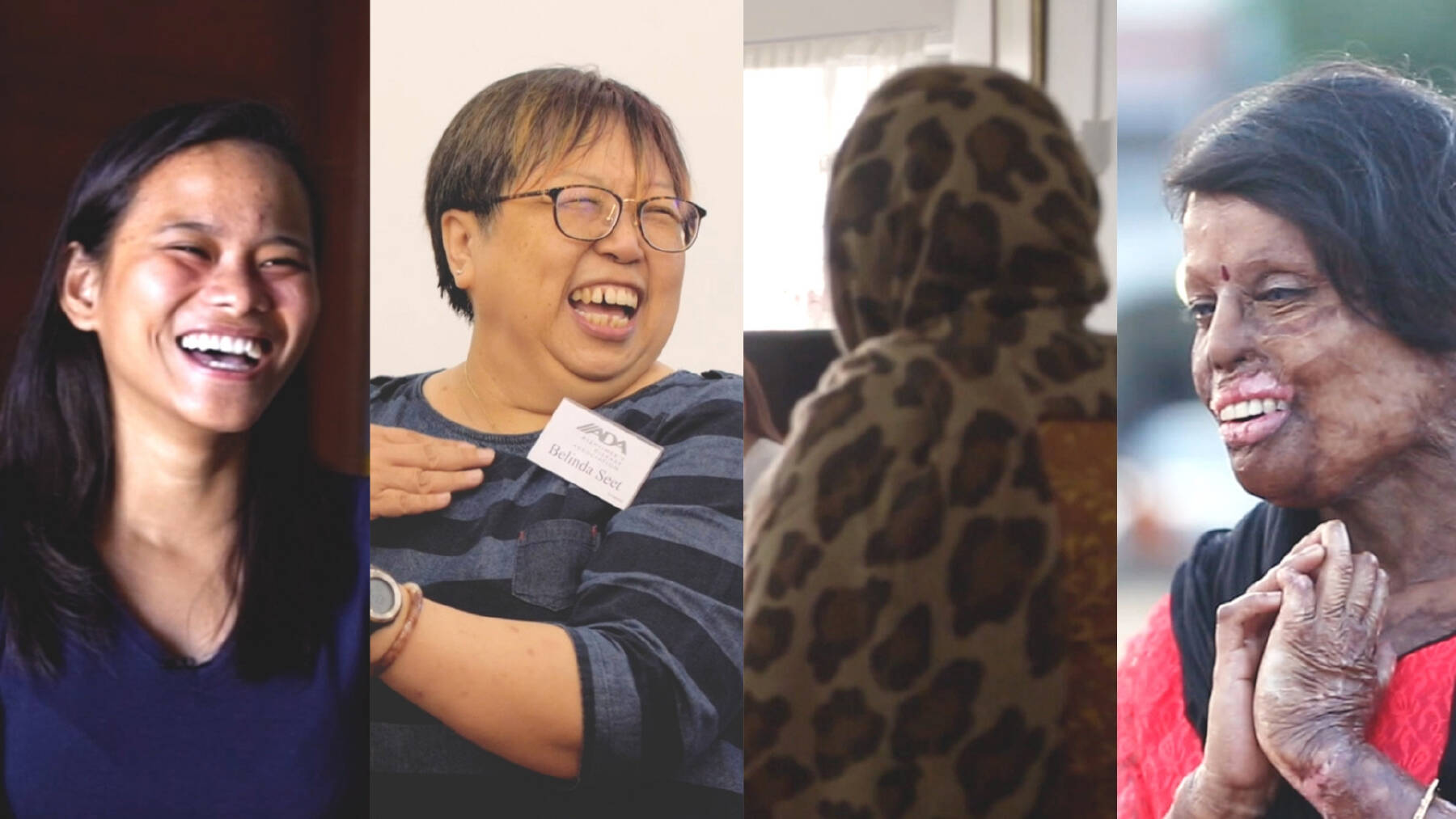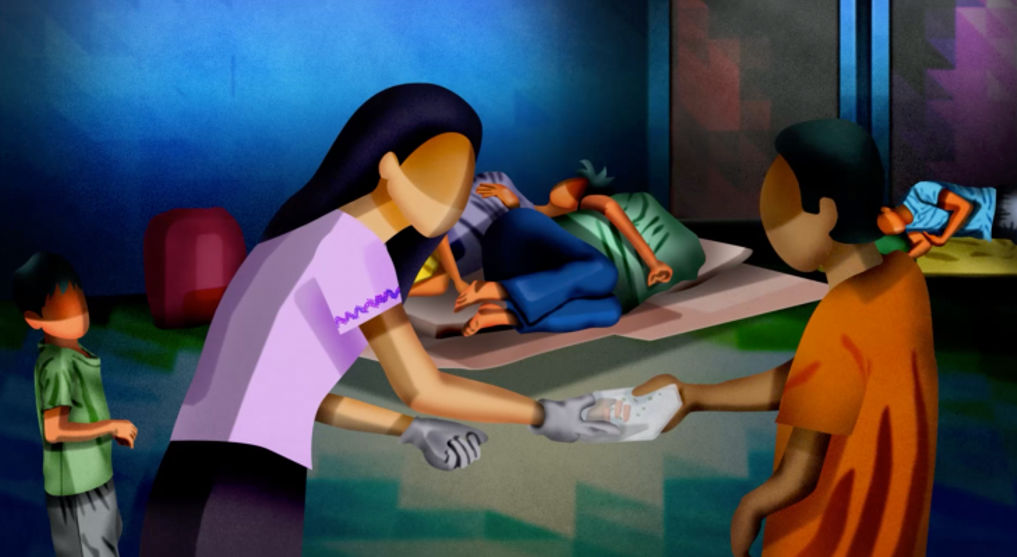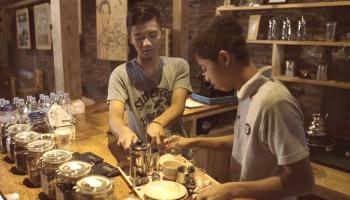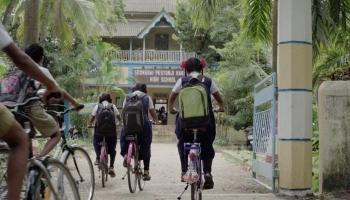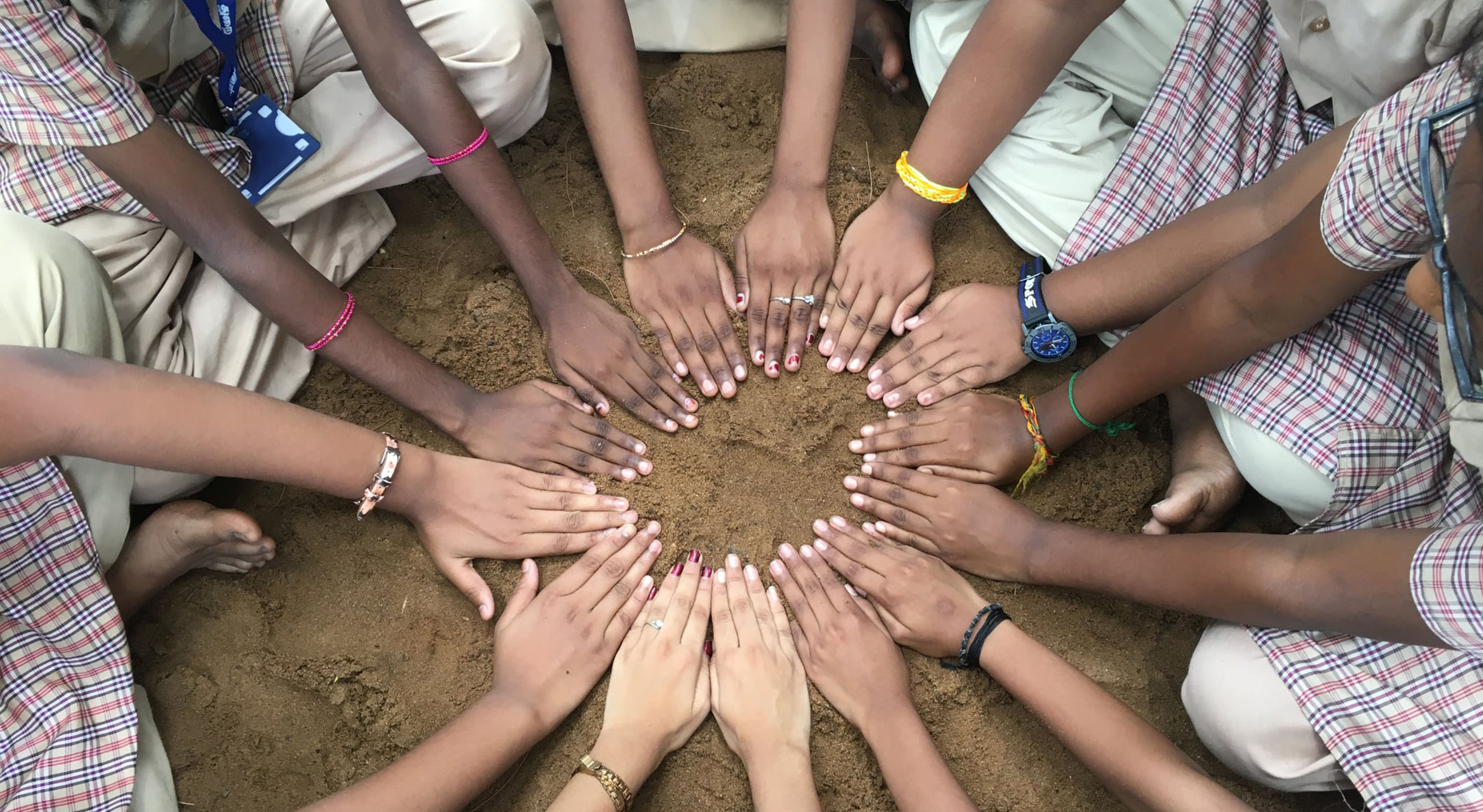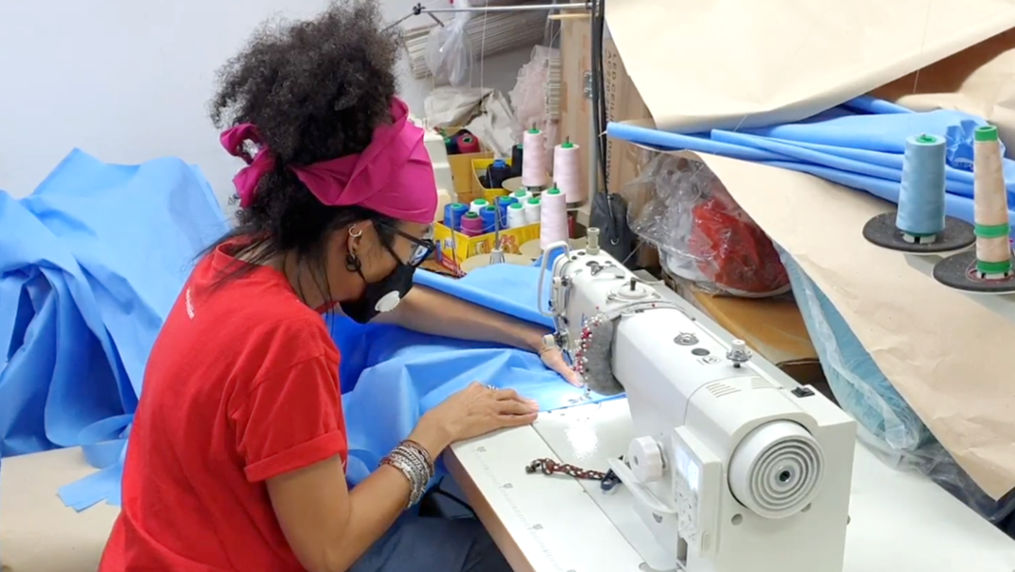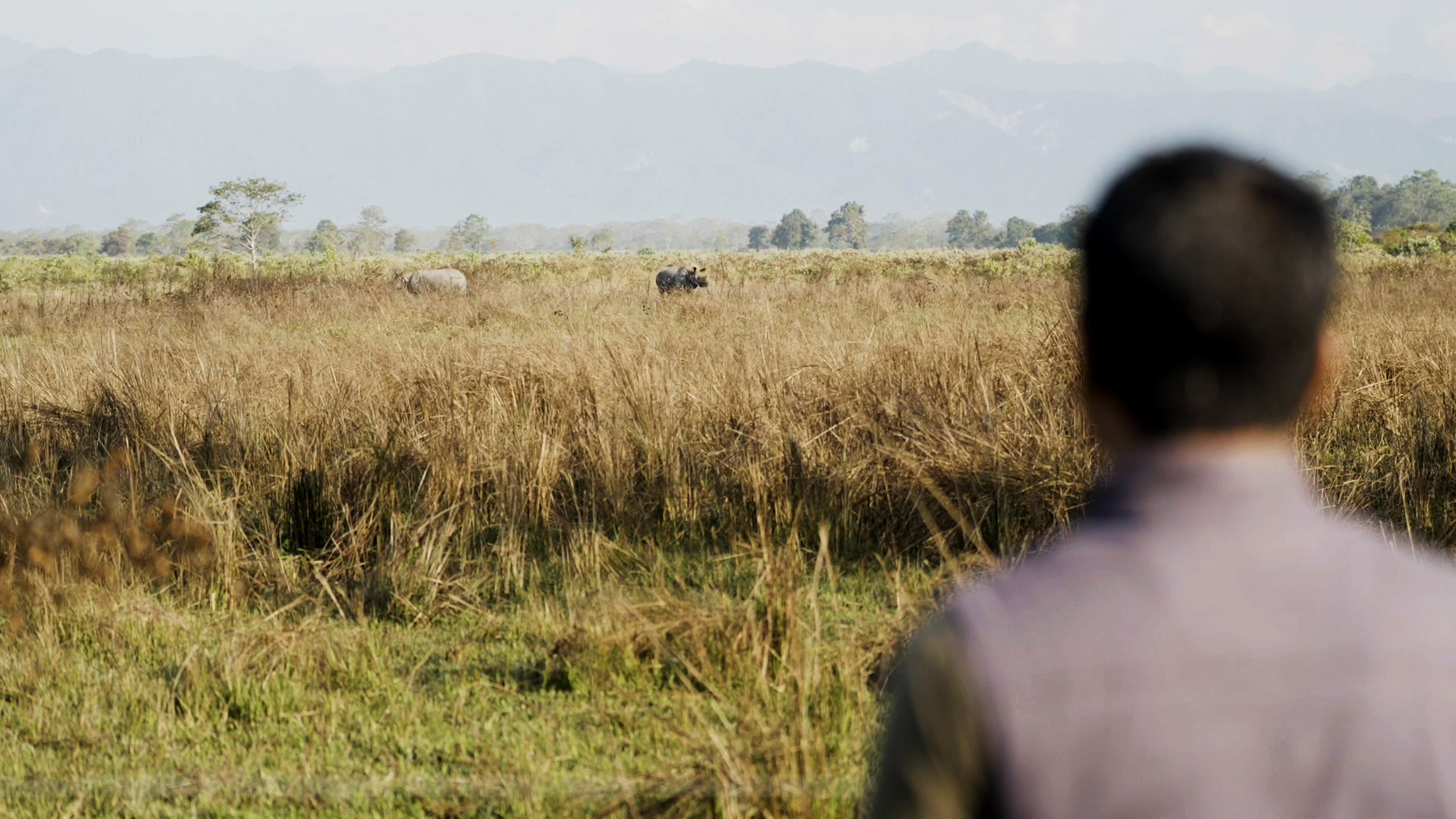#MayTwentyAko: Making a Difference with the Smallest Peso Bill
Charisse Parchamento, 19, has spent all of her life in Metro Manila, Philippines. A metropolitan area that has an iconic cityscape, historic national parks, and the record of being the city with the largest homeless population in the world. There are estimated to be over 3 million people, a quarter of the city’s population, who struggle with poverty.
A community who were severely affected when COVID-19 came to the shores of the Philippine archipelago.
“What will happen to the homeless? We are secure in our homes but they have no shelter to protect them from the virus,” shares Charisse. “They have no protection outside, and they can’t get their own hygiene kits and food everyday.”
It wasn’t just the homeless who were impacted by the global pandemic. The virus has affected the livelihoods of many of Charisse’s fellow Filipinos.
Charisse’s friend, Erika Ente, 27, was affected by what she saw happening around her as well, ““At a critical time such as this, will you have the capacity to think of other people?”
This desire to see impacted communities receive the vital support they needed, saw the two friends come together, to create #MayTwentyAko. An initiative to lend support to anyone and everyone in need.
#MAYTWENTYAKO
They launched the witty hashtag, meaning ‘I have 20 pesos’ in Tagalog, on social media to encourage a growing youth presence to donate 20 pesos (US$0.39). It is the smallest note denomination in the Philippine currency, making it an affordable donation.
When youth “rant, tweet or post on Facebook” to voice their frustrations, says Charisse, they are often viewed as keyboard warriors in the Philippines. The co-founders wanted to convert this online enthusiasm into offline action, channeling their energy and conversations into positive outcomes that contribute directly to society.
“That’s our goal with #MayTwentyAko - to help the homeless, and those who will lose their jobs during COVID-19,” she adds. “We believe that this is the time to consider the plight of others too.”
The youth-led initiative quickly grew to 13 people, including 12 youths aged between 17 and 27 years, and a 53-year-old, who is the mother of three of the volunteers.
The initial goal was to raise 2,000 pesos (US$39.75) to buy and distribute hand sanitisers to communities in need. But they received overwhelming support from the public and exceeded their fundraising target, therefore they channeled the additional donations to purchasing food, drinks, canned goods, personal protective equipment (PPE), and hygiene kits, consisting of liquid soap and hand sanitiser.
‘I HAVE TWENTY PESOS’
Charisse explains that people are often averse to donating, because they feel that it requires “a lot of money from their pockets.” But the idea of contributing 20 pesos is similar to donating spare change, making this a more achievable request.
“The 20-peso bill is the smallest bill. We have to be inclusive, especially for students,” says Charisse.
The team brings the giving of others to the doorsteps of those in need. Travelling across different cities and provinces in Metro Manilla, they distribute to schools, slums, shelters, hospitals and even along the streets.
“Our recipients are the homeless, informal workers, displaced workers and frontliners, because they are the ones at greater risk,” says Charisse. “They have no protection, and are the ones that are unable to provide their own hygiene kits and food.”
BUMPS ALONG THE ROAD
With the enhanced community quarantine (ECQ) in the Philippines restricting movement of the general public in place, the team has faced various challenges.
For one, obtaining a special quarantine pass to commute around the city is mandatory.
“We had to get passes at City Hall. We really pleaded because we need those to continue distributing,” recounts Charisse.
Another issue was securing the items they needed promptly, as most of the suppliers of PPE, disinfectant alcohol, hand sanitiser and liquid hand soap are located outside of Metro Manila.
They also encountered a shortage of manpower when some of their volunteers, who are minors (aged below 18 years old), were prevented from participating in the distribution rounds. At one point, only four of them were left to pack and distribute the items to the communities. But they continued to work tirelessly without complaining.
“Exhaustion is secondary, actually, we didn’t mind it because we know we are helping others,” explains Erika.
Their parents have been very supportive of their initiative, and even packed the kits with them.
Erika’s mum, Elizabeth Ente, says, “What concerns parents like me is that they might get sick. We can never know because we cannot see the virus. So every time they go out, I always remind them to be careful.”
On their rounds, the volunteers take precautions, such as wearing face masks and sanitising their hands after each distribution.
While the campaign started small, these youths have managed to widen the scope of their distribution beyond the original communities they intended.
For instance, they have distributed face masks, cookies, and kids’ colouring worksheets to Kapitbahayan Elementary School SPED Center, a school dedicated to students with special needs.
“I am happy because I didn’t expect that someone would respond to my call for help. I am grateful, because I know these are for kids with special needs, who do not understand what’s going on in their surroundings,” says Carmela Evitales, a teacher at the centre.
“We are thankful because you considered us and gave us the chance to receive these gifts. It may seem little to others but this means a lot to these children,” she adds.
The homeless were supported as well.
“What I can say to these young boys and girls is that I am thankful that they helped me to have this folding bed. They gave me the joy of having a bed that I can sit and sleep on,” says street dweller Lilian Salvatierra.
A CHALLENGE TO YOUTH
With the initiative gaining publicity and public trust, these youths do not take it for granted. They put up photos and posts of their distribution on social media, ensuring transparency in how they use the donations.
“The people placed their trust in us, hence they donated. We have to show them that their money goes to individuals in need and to the cause,” says Charisse.
Through their journey on this social campaign, they have encountered the kindness of the public from donations, to words of thanks to frontliners and appreciation from beneficiaries. Their plan is to keep the initiative going, even after the pandemic has eased up.
“ As long as the donations keep coming in, as long as there are people who trust us, as long as there’s someone in need, we will carry on,” Charisse says. “We have already established this campaign and we see no problem if we continue doing it.”
Mrs Ente encourages other parents: “If you have kids like mine who are willing to help, I suggest that you let them, and give them support.”
And to other young people, Charisse issues this challenge:
“We have to stop being apathetic. There is no time for apathy. All of us are accountable to other people. We have to consider the welfare of others and not just ourselves.”
About #MayTwentyAko
Contributors
Director & Editor
Producer & Writer
Camera
Noel Reblando & Bhenhor Tecson
Editor
Executive Producer
Sharon Pereira



